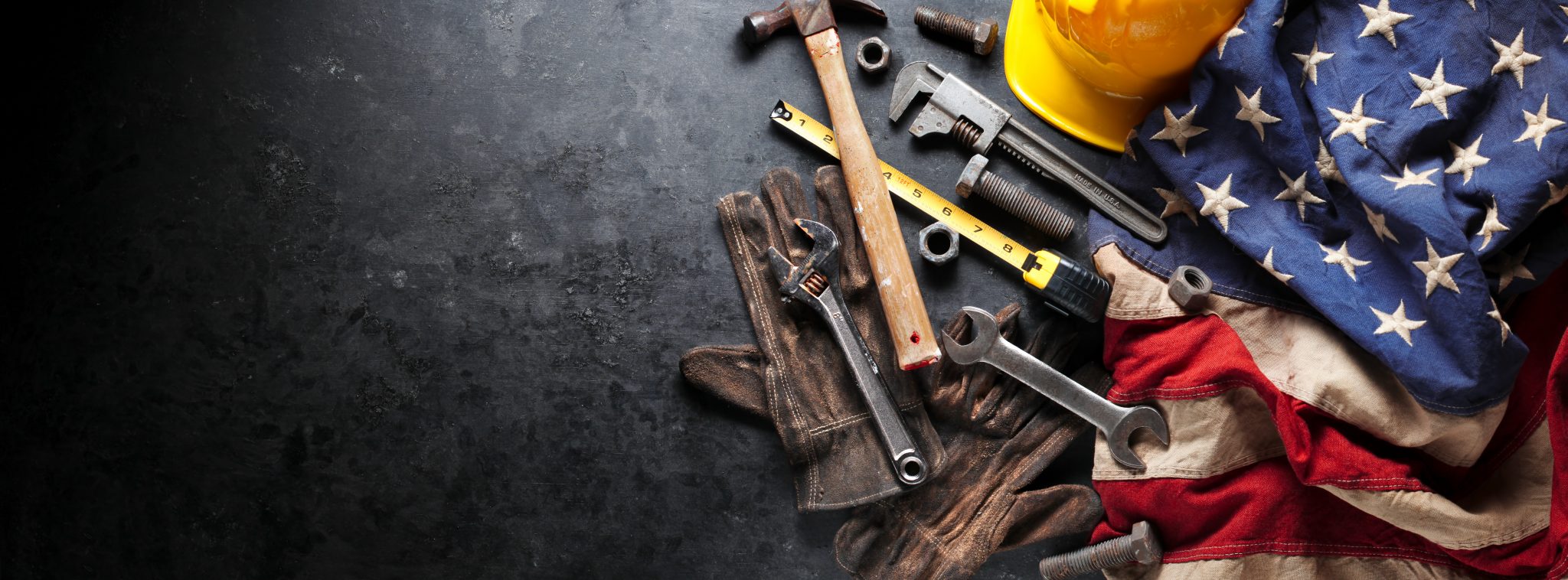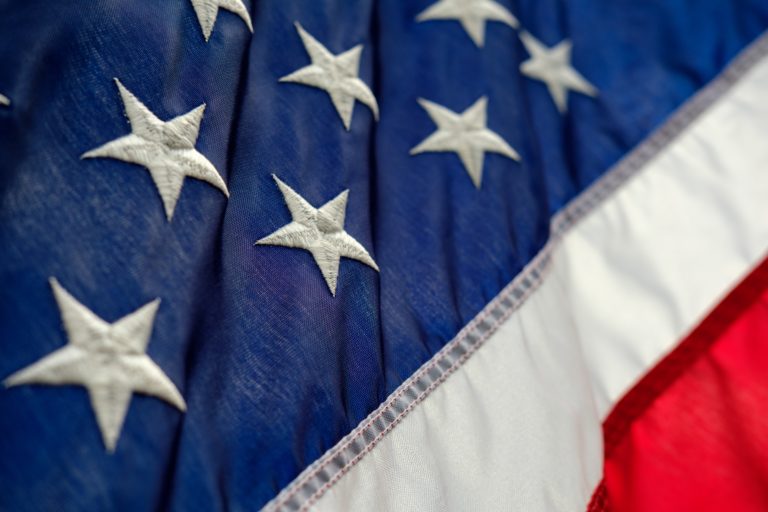Labor Day, the first Monday in September, celebrates the American labor movement and the achievements…
Women You Should Know About: The Labor Movement
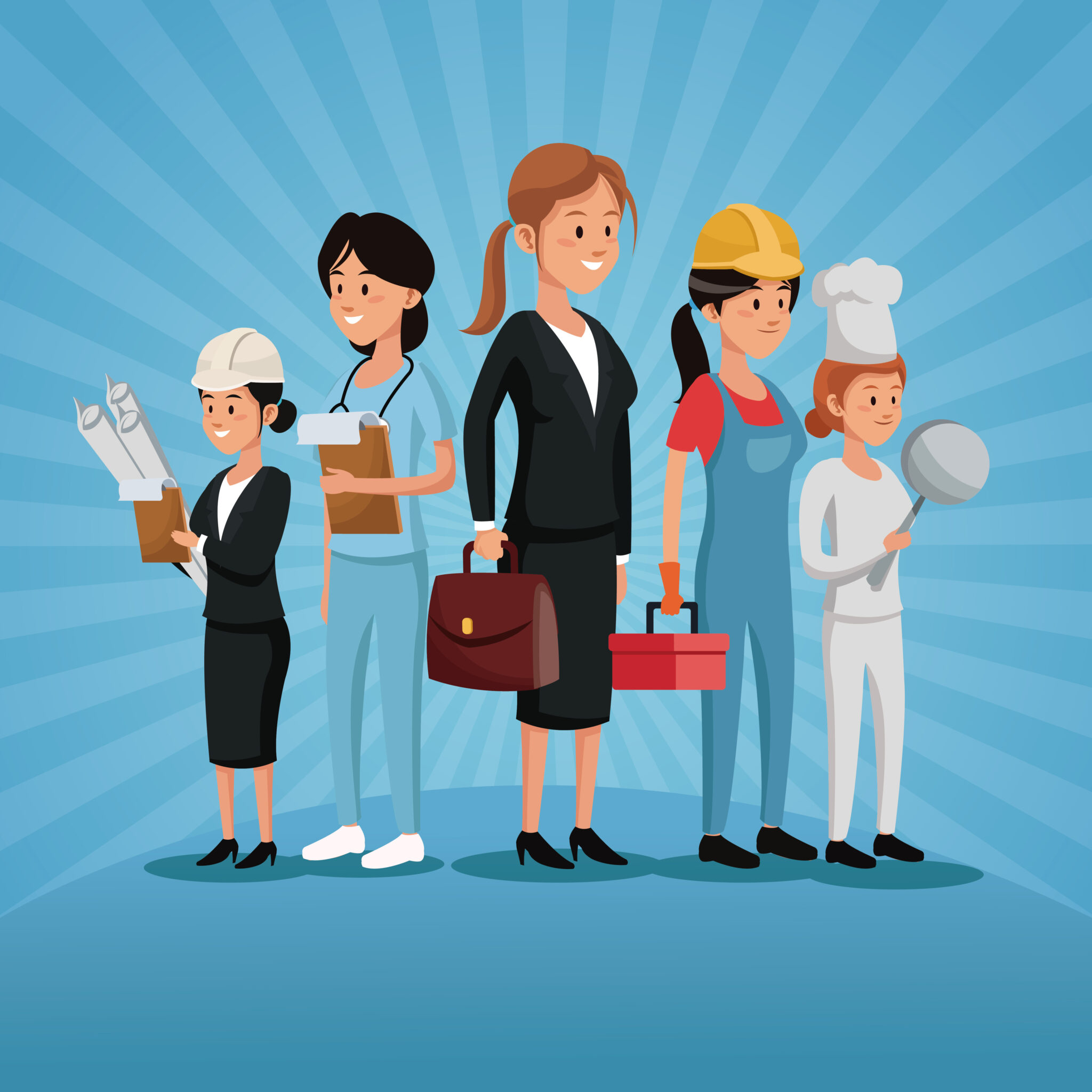
Labor Day, a holiday observed the first Monday of September, celebrates the American Labor Movement and honors laborers’ contributions to the country. Although they have not received proper recognition in the past, women have always played an integral role in the United States Labor Movement. As Gender on the Ballot celebrates Labor Day this year, we’d like to share six women you should know about that contributed to the United States Labor Movement.
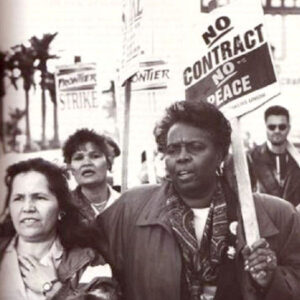
Photo credit: Veteran Feminists of America
Hattie Canty has been referred to as one of the greatest strike leaders in history. Canty became involved in union organizing after migrating from Alabama to Las Vegas and working for the Maxim Hotel. After joining the Las Vegas Hotel and Culinary Workers Union Local 226 and being elected president, Canty led several publicized strikes including a protest for unfair labor conditions for culinary workers at the new Frontier Hotel and Gambling, the longest labor strike in American history which lasted for six and a half years. Canty is most known for fighting for a living wage in addition to her support for minority involvement in the labor movement and workforce advancement. Canty’s labor unions were diverse, representing people from 84 different countries.
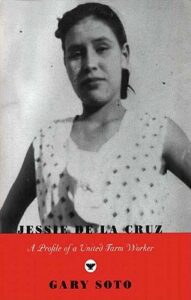
Photo Credit: Zinn Education Project
Jessie De La Cruz was a migrant worker from a young age, and often switched schools due to it. In 1965, De La Cruz joined the United Farm Workers union at the request of Cesar Chavez, becoming the group’s first woman recruiter. Through her union work, De La Cruz participated in strikes, became a delegate to the Democratic National Convention, testified before the Senate, and met with the Pope. De La Cruz’s union work involved helping to ban the short-handled hoe, educating farm workers, and fighting injustice for the working poor.
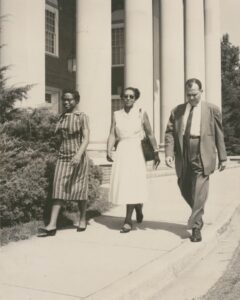
Photo credit: Zinn Education Project
While working for R.J. Reynolds Tobacco Company, Velma Hopkins helped mobilize over 10,000 employees into the streets of Winston-Salem, North Carolina to bring unions to the company following the death of a coworker. When Hopkins first joined R.J. Reynolds Tobacco Company, African Americans faced horrible working conditions including lack of promotions to higher-paying roles and working in segregated areas with extreme heat and dangerous tobacco dust. Women were also paid less than men. Hopkins and others eventually formed a union called Local 22 of the Food, Tobacco, Agricultural and Allied Workers of the America-CIO which was integrated and primarily led by African American women. Hopkins’ activism also included voting rights for Black people, pushing for desegregation of schools, and mentoring other activists.
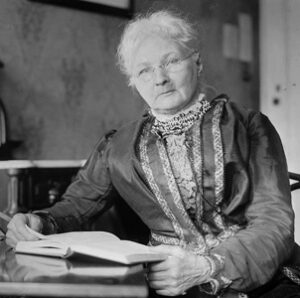
Photo Credit: Teen Vogue
Mary Harris “Mother” Jones was an American labor organizer and former schoolteacher. During Jones’ time as a labor organizer, she helped coordinate several major strikes, obtained bans on child labor, and co-founded the socialist trade union, the Industrial Workers of the World. One of the demonstrations “Mother” Jones is most known for is the “March of the Mill Children,” a march from Philadelphia to President Teddy Roosevelt’s Long Island summer home in Oyster Bay, New York. This demonstration aimed to publicize the harsh conditions of child labor, including children having missing fingers and developing other disabilities. Despite President Teddy Roosevelt refusing to meet with “Mother” Jones, the demonstration brought the issue to the forefront, eventually leading to the ban of child labor.
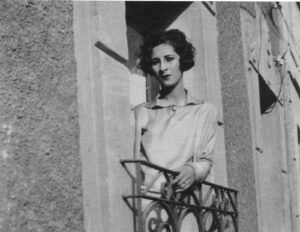
Photo Credit: Smithsonian Magazine
After spending her adolescence in Guatemala, Louisa Moreno migrated to New York City where she later became a labor organizer. Moreno’s first experience with labor activism was in 1930 while employed at Zelgreen’s Cafeteria in New York City. Moreno and her coworker protested the sexual harassment employees constantly faces, the exploitation of long work hours, and threat of dismissal if anyone objected to the working conditions. In her 20 years of labor activism, Moreno formed the 1939 Congreso de Pueblos de Habla Espanola, the “first national Latino civil rights assembly,” as well as unionized workers, led strikes, and wrote pamphlets in English and Spanish. During the 1950s, Moreno took a “voluntary departure under warrant of deportation” resulting from an investigation into her having once been a member of the Communist Party.
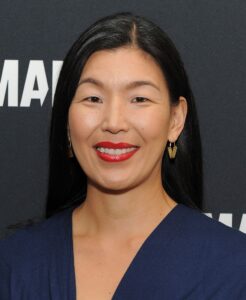
Photo Credit: Getty Images
Ai-Jen Poo is currently the president of the National Domestic Workers Alliance, an organization that advocates for the rights of domestic workers in the U.S. Poo first began organizing domestic workers in 1996 with CAAAV Organizing Asian Communities, a division within the Committee Against Anti-Asian Violence. In 2000, Poo founded Domestic Workers United, a New York-based organization of nannies, housekeepers, and elderly caregivers, who identify as women of color, strives for “power, respect, and fair labor standards.” And in 2017, along with Cecile Richards and Alicia Garza, Poo co-founded Supermajority, “… a community of 4 million strong, made up of women of all backgrounds, races, and ages who are ready to build the progressive women’s voting bloc and create a future where all people are truly equal.”




